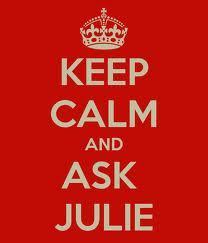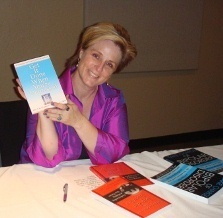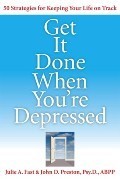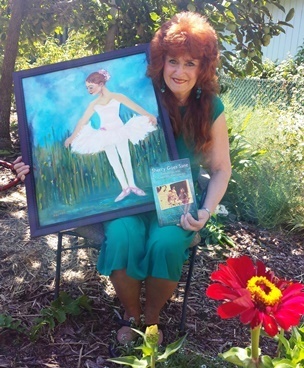Julie A. Fast's Blog, page 46
September 9, 2014
Bipolar disorder depression: ” Julie, Can You Help Me? I Feel Like I Can’t Go On….”
 I’ve been posting a lot to FACEBOOk lately. I have a wonderful bipolar disorder community on my page and I find great solace, fun and a lot of joy from the posts. Here is one from tonight.
I’ve been posting a lot to FACEBOOk lately. I have a wonderful bipolar disorder community on my page and I find great solace, fun and a lot of joy from the posts. Here is one from tonight.
” Julie, please help me. I feel like I can’t go on….”
When I first started BipolarHappens.com in 2002, I listed my email online. I didn’t know what I was doing of course- no one had eBooks back then except a few of us and I wanted to be available to everyone. The new media was so exciting- and still is. We can reach so many people. I received thousands of emails- not a typo- and for two years I answered them. I then had to take down my email of course- and for many years, my contact with my dear readers was through their buying my books, reading my social media or hearing me speak.
Now that DM is so popular with Facebook and other programs, I’m getting a lot of ‘email’s’ again. I have to decide how to deal with this. I want to be available, but I’m not able to answer them individually as the number of messages has become very high again. So, my idea is to post general answers.
Here is my first one.
Many, many people write me and say they can’t go on and ask how I do it. The answer is simple- I understand and accept that the feeling that I can’t go on is just another symptom of bipolar disorder and it’s common when you’re in a down swing. It’s common after you have had a bad manic episode- it’s so common that I wrote two posts about shame just in the past week because I had to deal with it after being manic once again. When you feel like you can’t go on- the feeling is real. It does feel literally like you can’t go on, but you can. You have probably done it many times before. I believe that thinking that one day that feeling is going to stop is what gets us into trouble. Feeling that you can’t go on is a symptom just like feeling euphoric when you’re in a super good feeling up swing is a symptom. They are equal. One makes you feel like you can take on the world, the other makes you feel that you can’t handle another day. NEITHER IS REAL! Does that make sense? Just like we have to learn that chasing euphoric mania is not good for us, it’s equally not good for us to believe that we can’t go on.
I’m down tonight- which is the normal brain chemistry event that happens after a manic episode. I was manic yesterday and I’m down today. It makes sense as I have ultra rapid cycling bipolar disorder two. I’m simply experiencing the illness. This is what makes me such a great writer and coach- I go through the mood swings just like everyone else. If you have written me and asked for advice- here it is.
EXPECT THE FEELING THAT YOU CAN’T GO ON AND HAVE A PLAN FOR IT.
My plan is to take my new medication (geodon) reach out to dear and loving friends- I just texted my friend Karen and will call my friend Sherry right now because it’s what I need to do- believe me, it’s not what I want to do! And I have a favor. If you have had the feeling that you can’t go on, please leave your advice below for how you deal with it and move through it- remember, if you have bipolar disorder, it’s not going to disappear. It will return. But that is the ONE GOOD THING ABOUT THIS ILLNESS! It’s episodic- we can and usually do go back to baseline. I plan to. And darn it- no matter what, I will get out of this down swing in the next few hours by doing what I write about in my books. Helping others is what works for me. I’m interested to know what works for you and I know that all of the people who write me who are in pain would love your advice as well. !!!!!
KISSES!
Julie
PS: Here is a picture of the earrings I made tonight for the contest winners on FACEBOOK rom last week. Believe me, there are a few tears in amongst all the beauty. Just like life! I do a contest every week- so definitely check out my page at Julie A. Fast
Related posts:
Bipolar Disorder and Work: I always, always feel better if I get something done
Bipolar disorder triggers: Don’t do the things that make you feel bad….
A Thank You Note from Julie
September 7, 2014
Embracing the Journey. Guest Blogger Martin (Marty) Baker: Author of Gum on My Shoe: One Step at a Time with My Bipolar Best Friend
Like many of the friends I’ve met on the internet, Marty charmed me with his commitment to helping those with bipolar disorder, especially his friend Fran. I asked him to write about his experiences as a friend of someone who has bipolar disorder and how it has changed his life. You can read more about Marty in the bio below, and of course there are lots of links, because if you are a mental health writer, you need to know Marty!!
Embracing the Journey by Martin Baker
“You’re stuck with me now, Frannie.” ”Like gum on my shoe!”
People are always interested when I say I’m writing a book called Gum on My Shoe. What’s it about they ask? I say, “It describes my friendship with Fran who lives 3000 miles away. Fran has bipolar disorder. She gets depressed, manic sometimes and is frequently suicidal. Despite the distance, I’m her main support.”
I wonder if you can guess some of the responses I get:
“Gee that’s rough on you!” “I couldn’t do that!” “She’s lucky to have you!”
I always reply in the same way: It’s not rough on me at all, our friendship is a giving, loving and very rewarding two way street. You might find yourself in a similar situation one day, don’t sell yourself – or your friends – short! And yes, Fran is lucky. And so am I, to have her in my life.
Recently someone asked a different question – one that was easier to answer, “What gifts does your friendship bring you?” I could tell she understood how and why I get so much from being friends with someone who has bipolar disorder. Being friends with an “ill” person is challenging. Of course it is! But it’s also powerfully rewarding, life-affirming — and joyful.
What gifts does my friendship with Fran bring to my life?
We’ve been friends now for three years, and we’ve journeyed together through mania, depression and debilitating fatigue, with suicidal thinking a more or less constant companion. Fran’s said many times she wouldn’t be here if it wasn’t for my support: “We live 3,000 miles apart – and I would not be alive without you.”
But our friendship has never been a burden. I’ve learned so much, and I’m still learning. I’m learning about tears, laughter, despair and the courage it takes to live an honest life. We share life’s ups and downs — and an occasional beer — like all friends do. We meditate together and I’m also exploring mindfulness and other life-skills. I’ve taken courses including Mental Health First Aid (MHFA) and Applied Suicide Intervention Skills Training (ASIST).
I’m learning I can make a difference and that I have a voice and a reason to use it. I’m meeting some amazing people.
I’m embracing the journey. One step at a time.
Marty
PS: I’m in the writing process for Gum on My Shoe and will let Julie know as soon as it’s published!
About the author
Martin Baker (“Call me Marty”) lives in the northeast of England. It’s a writers’ household. His wife writes historical fiction and their son is working on a fantasy novel. A Mental Health First Aider and a member of the National Alliance on Mental Illness (NAMI), Mind, and BipolarUK, Marty is passionate about raising awareness of mental health issues. He is active online and runs the social media for Gum on My Shoe. In May 2014, he completed a zip-line challenge for the UK homelessness charity Crisis and will complete a 10 kilometre walk in September 2014 in aid of the Alzheimer’s Society. As a ‘virtual walker’ he will accompany co-author Fran Houston on the annual fundraising walk for NAMI, in Portland, Maine. Marty and Fran are currently seeking an agent for their non-fiction book Gum on My Shoe: One Step at a Time with My Bipolar Best Friend.
Links: The Gum on My Shoe Website and Blog **** Twitter **** LinkedIn
Please feel free to email Marty and let him know what you thought of his blog. martin.baker @ Hotmail dot com.
You can find Martin’s Facebook pages under Martin Baker and for the book Gum on My Shoe. His Goodreads page is under the name Marty Baker.
A note from Julie: Wait! There’s more! Marty is having a contest on his Gum on My Shoe website where you, dear reader can win books from mental health authors, including myself and fellow guest bloggers Gayathri Ramprasad and Sherry Joiner. Here is the link and here’s a pic of some of the books offered. The contest goes until Sept 30, 2014, so you have plenty of time to enter. Marty is quite a mover and shaker when it comes to getting the word out about mental health management. Thank you Marty for all that you do!
Related posts:
Author, Speaker, Health Advocate Karen Tyrell: Guest Blogger Update!
Guest Blogger: Gayathri Ramprasad author of the upcoming memoir Shadows in the Sun
Guest Blogger: Sherry Joiner author of Sherry Goes Sane: Living a Life with Schizoaffective Disorder
September 2, 2014
What Do I Need to Know About Bipolar Disorder Mania? Take the quiz!
Are you ready to test your mania knowledge? Good luck! Answers are below.
1.Mania has two levels of intensity. What are they?
a. Euphoria and dysphoria.
b. Awake all night and feeling groggy the next day.
c. Full blown mania and hypomania.
d. Talkative and non talkative.
2. Which of the behaviors below represent manic behavior?
a. Driving 90 miles an hour down the freeway while playing air guitar on the steering wheel.
b. Yelling and raging at the people who care about you and telling them to leave you the @$@# alone!
c. Meeting someone and moving in the next week.
d. All of the above.
3. There are two types of mania: euphoric and dysphoric. What is the main difference?
a. Euphoric mania isn’t serious.
b. Dysphoric mania doesn’t come with sleep problems.
c. One is an upbeat mood where a person feels great, creative and excited about life’s possibilities. The other is a negative, agitated and depressed mood that feels physically uncomfortable, irritable and miserable.
d. Only dysphoric mania has impulsive decisions regarding sex, spending, travel and work.
4. What medications are used to treat and manage mania?
a. Anti psychotics
b. Lithium
c. Anti Epileptics
d. All of the above.
ANSWERS
1. Mania has two levels depending on a diagnosis. What are they? (The answer is c.) Full blown mania and hypomania. They share similar symptoms, but the full blown mania is far more serious and often requires hospitalization. It can also be combined with psychosis. But don’t think that hypomania doesn’t cause problems. It certainly does! People with bipolar I have full blown mania. People with bipolar ii have hypomania.
2. Which of the behaviors below represent manic behavior? (The answer is d.) All of the above. I know because all of the answers were my behaviors before I was diagnosed! They still show up.
3. There are two types of mania: Euphoric and Dysphoric. What is the main difference? The answer is c. The other three are simply wrong!
4. What medications are used to treat and manage mania? (The answer is d.) All of the above. And sometimes all at once! Anti epileptic medications such a Lamictal, Depakote and Tegretol are used as mood stabilizers, but they were originally for epilepsy. Interesting!
**
How do you feel about you mania knowledge now?
This was originally posted on the Oprah and Dr. Oz website www.Sharecare.com. Click here to see my answer to the question: How is Bipolar Disorder Mania Different from Extreme Happiness?
I’m a mental health expert for the site and have answered 111 questions so far!
Julie
Related posts:
Bipolar Disorder Agitated Mania/Dysphoric Mania
Bipolar Depression and Mania (euphoric and dysphoric)
Bipolar Disorder one and Bipolar Disorder two
September 1, 2014
Guest Blogger Sherry Joiner: It was like my head was so much clearer…. before
It was great doing an interview for the Bp Magazing blog with Julie about the differences between schizo affective disorder and bipolar disorder. Julie asked me to write what life was like for me after I finally had the correct diagnosis of schizo-affective disorder.
After the diagnosis, I got on the right meds and that really helped. It was like my head was so much clearer on the meds. Before, it was like it was like I had a block of metal and I hammered on the metal for an hour and then threw it in the fire- then doused it out with a cold pitcher of water- that is how I described my pain.
The cold hard pain of mental illness.
The meds stopped this. I could finally see that I was not the problem. My problem was living with schizo affective disorder, complicated with living with childhood abuse. I wasn’t causing this. I went to a new doctor- Dr. Ward T. Smith and he changed my life. I talk about him a lot in my book Sherry Goes Sane. We talked about my paranoia, depression, hallucinations and flashbacks. He talked with me about the conflicts I was having with people. He helped me interact with others and maintain my relationships and develop my art work and my life with my husband who had diabetes and a few personality quirks of his own.
Julie, you often comment on how happy I am. It’s true. I always say to myself- tomorrow is going to be a different day. It’s not the same day. I was having feelings of grandeur the other day and I talked to myself and remembered what I could do to manage the psychosis- paint, take a walk, talk to my sister, my higher power or help others who have this illness -which helps me. I lead meditations at the psychatric ward and I help people from going off the deep end. That’s what keeps me going.
Sherry
PS: A note from Julie. Sherry, you help me keep going too! I love your book! Readers, you can click here to read more about Sherry’s book on Amazon. Here is a link to part one of the interview I did with Sherry for Bp Magazine on What is Schizoaffective Disorder?
Related posts:
Guest Blogger: Sherry Joiner author of Sherry Goes Sane: Living a Life with Schizoaffective Disorder
My Bp Magazine Blog: An Interview with Sherry Joiner. What is the Difference between Bipolar Disorder and Schizo-affective Disorder?
Book contest with Sherry Joiner author of Sherry Goes Sane: Living a Life with Schizoaffective Disorder
Three Tips to manage depression and suicidal thoughts with or without medications: Guest blogger Douglas Bloch shares the management system that saved his life
 A note from Julie: I’ve known Douglas from the mental health community here in Portland, Oregon in the US for over ten years. I knew he would be the perfect guest blogger as he offers so many effective resources. I like that Douglas goes to trainings- he offers so much of his information for free- he is a true example of what he writes about and he saves lives! When someone like Douglas offers his email to the public, he means it. So drop him a line! I especially enjoy his videos. They are on tough topics, but are very accessible! Take it away Douglas….
A note from Julie: I’ve known Douglas from the mental health community here in Portland, Oregon in the US for over ten years. I knew he would be the perfect guest blogger as he offers so many effective resources. I like that Douglas goes to trainings- he offers so much of his information for free- he is a true example of what he writes about and he saves lives! When someone like Douglas offers his email to the public, he means it. So drop him a line! I especially enjoy his videos. They are on tough topics, but are very accessible! Take it away Douglas….
My name is Douglas Bloch. I’m an author and depression survivor. For all of my adult life, I’ve battled a treatment resistant depression and anxiety that would not respond to medication. Fortunately, after much trial and error, I was able to create a “body-mind and spirit” mental health recovery program that has allowed me to live optimally and to reduce my symptoms of anxiety and depression.
The heart of this wellness program consists of three steps:
1. Set the intention to heal. For example, a man who had not left his apartment for three months because of a disabling depression, came to my group and wrote a powerful vision statement of wellness. Within twelve weeks he had reengaged with the world, which included started his own employment agency.
2. Reach out for support, as we cannot heal in isolation. Two women in my group who each heard voices telling them to harm themselves, agreed to call each other whenever these suicidal voices emerged. In this way, they kept each other safe until the voices went away.
3. Treat your symptoms with a combination of mutually supportive therapies. One group member put together a recovery program that combined exercise, good nutrition, positive affirmations, prayer and meditation, social support and volunteer work to successfully manage her symptoms of depression and anxiety.
Thus, intention +tools + support = mental health recovery.
I know that the healing I have received can be experienced by anyone. As a result, I have sought to share this recovery program through my books, website, YouTube videos, and through facilitating an ongoing depression/anxiety support group in Portland, Oregon. These resources are listed below:
My Healing from Depression Website.
Healing from Depression YouTube channel.
Click here to watch two of my videos on suicidal thoughts and feelings:
How to Find Alternatives to Suicide and How I Coped with Suicidal Thoughts and Feelings
If you’re in Portland, Oregon where Julie and I live, here is the link to read more about my healing from depression and anxiety support group. (A note from Julie. As many of you know, I am a huge fan of professionally run support groups. Getting to see Douglas on a regular basis in a group setting is GOLD!)
In the process of working with people, I have witnessed many miracles and healings. I now believe that when a person wants to get well and reaches out for support, he or she will experience recovery.
Please feel free to contact me (douglasbloch at gmail dot com) if you have questions about this work. I wish you the best in your healing journey.
Sincerely,
Douglas Bloch, M.A.
Hi, It’s Julie again. Can you believe that someone with depression and anxiety has written so many books and done so much? I believe it. When we learn to manage these illnesses, we can be productive. Even during the tough times. When we have a plan like the one Douglas shares in his books and videos, we can get better. Thank you Douglas- you rock!
Click here to read more about Douglas’ book Healing from Depression on Amazon.
Click here to visit Douglas’ book page on his website to learn more about his many books on depression recovery. All expect Beyond Prozac are available on amazon. You can also buy his books directly from his website.
Wait. There’s more! And here is a link to Douglas’ free e-tips newsletter which will provide you with weekly tools and coping strategies on how to heal from depression, anxiety and bipolar disorder.
Related posts:
Guest Blogger: Gayathri Ramprasad author of the upcoming memoir Shadows in the Sun
bipolar disorder depression tips
Bipolar Disorder and Suicidal Depression Downswings
August 31, 2014
How are your friendships these days?
 How do you deal with change in your friendships?
How do you deal with change in your friendships?
Changes in friendships are inevitable, especially as we get older. I went through the wave of changes when my friends started having kids. I never wanted children, but most of my friends did. I saw them less once the kids were born- but now that the kids are getting older, I see these friends more! When friends get into a GOOD relationship, you see them less. It’s natural.
When it’s a BAD relationship, you talk to them more because they want to vent.
It can be hard to take if you’re feeling left out.. because the person naturally wants to spend time with their new love and simply can’t have the same time for you as they had in the past.
It has happened to me a lot. I miss the time with friends when they get into a relationship or have a baby. And yet when I’m in a relationship, I spend less time with friends as well. I want to be the kind of friend who moves with change. I don’t want to fight change. My brain does. My brain wants everyone to be on call for me! HEHE. It’s hard work to be a good friend. I work on it constantly.
How are your friendships?
Julie
Related posts:
Newsletter: Keep Your Friendships Strong! Focus on Facts- not BIPOLAR Disorder FEELINGS!
Scheduling my days….
Bipolar disorder… tips for making it through the tough days.
Accepting New Family Member and Partner Coaching Clients

Five years ago, I started coaching partners and family members of people with bipolar disorder as an addition to my writing career.
I never, ever thought I would find work that I enjoy as much as I enjoy coaching. I feel at home with the parents and partners as I have been where they are- and I remain calm during the crises that many of my clients are going through while we are working together. Bipolar disorder is like a puzzle. It’s not always easy to find the right pieces on your own. It helps to have a coach as a guide.
My coaching practice has room for new clients. I take new clients about once a month-and then help them as best I can. It’s a partnership that saves relationships and often lives.
Coaching is not for everyone, but if you are concerned about your relationship with a person with bipolar disorder, it may be a good fit for you. The following link will tell you more. I look forward to talking.
Julie Fast Family and Partner Coaching
Julie
Related posts:
Accepting New Family Member and Partner Coaching Clients
Accepting New Family and Partner Coaching Clients
Accepting New Family and Partner Coaching Clients
August 27, 2014
ENOUGH! MY RESPONSE TO THOSE WHO ATTACK ME FOR BELIEVING IN THE MEDICAL MODEL TREATMENT OF BIPOLAR DISORDER.
I’ve had enough of comments that knock my belief that there are situations where people with bipolar disorder desperately need medications.
As many of you know, I wrote my first book, Bipolar Happens! in 1998. I then wrote the Health Cards- a treatment plan that works with or without medications- and then Loving Someone with Bipolar Disorder, Take Charge of Bipolar Disorder and Get it Done When You’re Depressed. ALL of these books are based on the idea that medications are ONE part of bipolar disorder management. Not the end all and be all- but an integral piece of the puzzle, especially for those of use who are unlucky enough to have chronic, never ending mood swings.
To attack someone for using medications is sinister.
What can the motive for this behavior possibly be? Are these people writing MS and diabetes websites and telling people they should not take medications? Are they attacking breast cancer treatment in the same way? It ASTOUNDS me that some people believe that attacking a person for their use of medications when needed is actually helping anyone.
I’ve worked as a coach for family members and partners of people with bipolar disorder for five years now. I hear the horror stories that few people hear. Adult children living at home, refusing help and high jacking the parents’ house due to untreated bipolar disorder- and then, when even the most modest of medication regime is introduced, the child gets out of the room, goes to school or work- gets off the video games and the drugs and the drinking and says- thank you for believing in me. Partners in loving and kind relationships who wake up one day to a partner who has so profoundly changed during a manic episode that the police have to be called. In almost all of these situations- the person has been on meds that worked and then gone off meds with the result being a dangerous and life threatening mood swing. Where do anti medication people stand when a parent or partner is crying in desperation because their loved one can’t see they are ill?
How can this possibly be a bad thing? Enough I say! No more- my stance is 100% clear and always has been. I don’t like having to take medications- and I’ve gone for very, very long periods where I didn’t take them- but just this time last year they saved my life.
I wish I could take them every day and not have to use the Health Cards every minute in order to just get out of bed.
If you do not believe in medications for bipolar disorder, THEN DON’T TAKE THEM!
It’s pretty simple. I take them when needed and will always support their use if I feel they will help a person have a productive life. If you are someone who wants to push a zero medication agenda, there are plenty of places- and conferences and blogs and websites where you can do so- just know that my sites are not the place to push any agenda. I will no longer post them on this site as I feel they are detrimental to those who are looking for help. I believe in BALANCE.
I’m open to constructive criticism and positive reinforcement. As I write this, I’m thinking of my dear friend Gayathri Ramprasad- colleague, executive director of AHSA international and the author of Shadows in the Sun- the first book ever written by an Asian woman that openly discusses depression, anxiety and suicide- I’m on the board of ASHA. Gayathri doesn’t take medications on a daily basis. I have many friends who choose to manage their mental health disorders with natural treatments- but let me be very, very honest here.
I don’t know of ANYONE with bipolar disorder who has not needed medications at some point in order to survive.
I’ve taken the so-called high road for over ten years and I’m done. I will not tolerate, accept or condone any more internet negativity from anyone- anywhere. regarding the use of medications when needed- in moderation- with open eyes- for people with bipolar disorder. If you support a similar policy- then feel free to be vocal about it. We must take the internet back from trolls- from the negative and unhelpful- from those who accuse and mock and degrade those who are simply trying to get better. Enough I say- and onward to a more positive mental health internet!
Julie
Related posts:
What is the Health Cards Treatment System for Bipolar Disorder?
Keep trying to find the right bipolar disorder medication…..
Keep trying to find the right bipolar disorder medication…..
August 25, 2014
100% Lesbian.. Except When Manic: A Guest Blog from Selina Glater
100% Lesbian, Except When Manic by Selina Glater
It seems that sexual orientation doesn’t change. You either know that you are heterosexual, or that you are gay, or that you might be both. In my opinion, I believe we are hard wired in our sexual orientation. I know that I’m a lesbian, but with one relatively simple wrinkle.
I’m also an individual with bipolar disorder.
Double whammy you say. You had better believe that it is! When I’m manic, I do many outlandish things such as talking too rapidly, spending more money than I have, and you guessed it, jumping into bed with men.
Normally, the idea of having sex with men is not exactly a turn on, but when manic all of my so called normal sexual tendencies as a lesbian fly out the window. This is often normal behavior for someone who is manic. So, if you consider yourself a heterosexual person, but you slept with someone of the same sex when you were manic, know that you’re just responding to the manic chatter in your head.
Mania can change how we perceive things. But, don’t get caught thinking that your sexual identity is dependent on your behavior during mania. It just isn’t so!
Selina
A note from Julie: Here’s a nicely detailed bio of the amazing Selina!
Selina and I are working together on her coaching practice. I will add more details once her practice is open for new clients. She works with the community she writes about in this funny, but realistic blog. Please leave any comments you have in the comments section below and I will make sure she receives them. She can also answer any questions you have. If you would like more information about her upcoming coaching practice, please let me know as well. Selina and I met when I was the keynote speaker for the Monterey County Mental Health Commission Fiesta of Hope Dinner in California. Lucky me!
*** BIO ***
Selina I. Glater is a mental health advocate, writer, speaker, and coach. She is also a lesbian who advocates for LGBT rights. Selina lives with bipolar disorder daily and understands the difficulties that people with mental illness face first hand.
She is also a registered music therapist and psychiatric rehabilitation therapist.
Selina was the first consumer to be hired as the Coordinator of Self Help and Advocacy for Santa Barbara County Mental Health Services. She also served as the Director of Consumer Advocacy and Outreach for Sanctuary Psychiatric Centers of Santa Barbara. In 1994, Selina was inducted into the California Governor’s Hall of Fame for People with Disabilities. She is a former governor’s appointee to the California State Mental Health Planning Council and currently serves as a Mental Health Commissioner on the Monterey County Mental Health Commission.
Selina is the annual Master of Ceremonies for the popular, and stigma busting Fiesta of Hope dinner that highlights individuals with mental illness and their contributions to the community. This event is sponsored by the Monterey County Mental Health Commission. Selina is currently working on a memoir of her experiences with bipolar disorder entitled, “The Bipolar Mistress.” She is also a gifted violinist and has won many awards for her performances. She has a B.A. Degree from Pepperdine University where she attended on a full music scholarship. Selina also has a M.A. Degree from the University of California, Santa Barbara where she won a university wide teaching award for excellence in education. She lives in Monterey, California with her beautiful Burmese cat, Miss Ruthie. Selina, and her partner Cheryl, have been together for 12 years.
Related posts:
Podcast from Julie A. Fast on Travel and Bipolar Disorder and so much more…
MANIC: Terri Cheney on the Julie Fast Radio Show
My hypo manic mood swing….
August 22, 2014
Facebook Q&A with Julie Fast today!

 Here are the questions I have so far. I will answer for the next few hours. Please visit my Facebook page at Julie A. Fast to post your live questions. I will be online at 3:30 PM PST for a live chat! Julie
Here are the questions I have so far. I will answer for the next few hours. Please visit my Facebook page at Julie A. Fast to post your live questions. I will be online at 3:30 PM PST for a live chat! Julie
Questions for Julie:
Would you address the impact of caffeine and energy drinks and bipolar?
I have a few crusades in life that are ongoing- one is to warn people with bipolar disorder of the EXTREME dangers of taking steroids including cortisone, prednisone and testosterone- as the steroids have a tendency to cause terrible mood swings even in small amounts. Another one of my crusades is pointing out the dangers of energy drinks for people who have bipolar disorder. Click here to read a newsletter on the topic. I titled the newsletter- Can Energy Drinks Cause Mania? The answer is an absolute yes, but the reason why might surprise you!
Julie, do you still take Lamictal (lamotrigine)?
As you may know, my medication history is checkered just like most people with bipolar disorder. I’ve never been able to stay on anything long term. The longest and most successful medication I used was Lamictal (lamotrigine). It worked very well for five years and then stopped working. I took a few years off it and am now back on it- slowly dosing myself back to a pretty high dose. I was on 700 mg when I stopped. It’s my absolute favorite medication for Bipolar Disorder Two as it has the least side effects with the most help for mood swings. I find that it works for irritated depression and rapid cycling very well. It helps with mild hypomania and is good for depression. If you don’t like taking meds- and most of us don’t- I find that Lamictal is the most benign. Of course there is the rash… but it’s rare and if your health care professional doses the medication up slowly, the risk is VERY low. Also, there is a non serious rash that comes with Lamictal that can come and go. The bad rash looks like poison ivy and is oozy bumps. The mild rash tends to be red, small bumps in a small area. I take side effects very seriously, but I get upset if someone won’t use this amazing medication because of fear of the rash. Use it correctly and it the rash can be avoided.
 Have you ever smoked pot and do you smoke it now?
Have you ever smoked pot and do you smoke it now?
I used to smoke pot like Cheech and Chong in the 80s, but I would not TOUCH the stuff now without knowing the THC level of what I’m smoking. It’s not the same pot as the pot that was around until about ten years ago. This NEW PSYCHOTIC POT has a little problem – it’s a genetically modified THC monster that causes a ridiculous amount of psychosis in people with bipolar disorder. In fact, it can cause so much psychosis that emergency rooms now have to check for pot in the blood before giving a mental health diagnosis. A dear client of mine opened my eyes to this many years ago. I used to see pot and drinking in the same
category. Now I don’t. Not at all. High levels of THC are dangerous for those of us with bipolar disorder. We know about the dangers of smoking crack and meth- we now have to add smoking high level THC pot to the list.
Dear readers who love pot, before you get all freaky upset with me- please note that I’m not an anti pot conservative weirdo who is just saying this because I don’t believe in drugs. That’s not the case. (Come on, I have green hair!) I’m saying this because I have years and years of experience with the situation- if you are going to smoke pot- and you have bipolar disorder- then find a low THC pot so that you can get the mellow benefits you’re looking for and at the same time keep yourself from getting PSYCHOTIC! My webmaster Emanuel who is a drug safety advocate and expert explained this very well- if it is low THC pot, there is less danger of psychosis. If you grow your own pot and it is not making you psychotic, it means it’s low THC. If you are getting it off the street and you are experiencing high anxiety and psychosis, find some pot that has a lower THC. I personally do not choose to smoke pot as I think it adversely affects my moods. If a person smokes pot and is stable-is able to handle work and relationships and is an all around functional person, then pot is not a problem. But as you can imagine, I mostly see the problems! My biggest advice- if you are not doing well-
if the mood swings are consistent- if you have anxiety and psychosis or can’t seem to find a solid footing in life- smoking pot is not the answer. Managing this illness is the answer- if you want to smoke pot after that it’s up to you! For more information on pot and bipolar disorder, including a great video about the synthetic pot product Spice, click .
What do you mean by the High-jacked House and where can I find the article? The High-Jacked House is a term I use to describe what happens when an adult child with bipolar disorder moves back home and the illness takes over the house. I’ve coaching parents of children with bipolar disorder for many years, and when an adult child moves back in, it’s so easy for the child and the illness to creep into every crevice of the house- even when the child doesn’t want it to happen! Click here for the link to the article that explains how parents can recognize and prevent the High-Jacked House. If you have bipolar, this is a great article to read as it helps those of us with the illness get more insight into how our behavior might affect others!
 How’s your day going? Thanks for asking. Today is a VERY abnormal day. I woke up able to work and have worked for the past few hours. It’s usually a daily struggle. I have to use my Get it Done When You’re Depressed techniques all day long, but today it’s like I’m a normal person who likes what she does and just gets on with it. So, I have to take advantage of this. I cancelled a few things so that I could do the Facebook Q&A as I have promised to do it for a long time! No, I’m not manic. Manic is not very focused for me work wise- or, I should say it is hyper focused on one topic- such as outlining a new book! Today I feel regular. Oh, I would pay millions to be like this every day- just normal person who gets to do her job. But as it’s rare, I’m taking advantage of it.
How’s your day going? Thanks for asking. Today is a VERY abnormal day. I woke up able to work and have worked for the past few hours. It’s usually a daily struggle. I have to use my Get it Done When You’re Depressed techniques all day long, but today it’s like I’m a normal person who likes what she does and just gets on with it. So, I have to take advantage of this. I cancelled a few things so that I could do the Facebook Q&A as I have promised to do it for a long time! No, I’m not manic. Manic is not very focused for me work wise- or, I should say it is hyper focused on one topic- such as outlining a new book! Today I feel regular. Oh, I would pay millions to be like this every day- just normal person who gets to do her job. But as it’s rare, I’m taking advantage of it.
Hi Julie, I really need someone to talk to. Can we chat later today online?
What’s your favorite TV show? I’m obsessed with Vikings. Not a great show if you’re depressed- but incredible if you’re feeling stable! I am going to write my werewolf movie one day- and I want Travis Fimmel to be the lead. I will keep you posted! I also like Game of Thrones, The Walking Dead, The Mindy Project, So You Think You Can Dance and Modern Family. I mostly watch SOCCER and CYCLING!
Julie, I would like to ask how hard was (and is) it to “come out” so publically about your illness, and how you handle stigma/rejection by people (friends, colleagues, family) if that has happened to you.
I wrote a book on my experiences with bipolar disorder. What tips do you have for marketing the book?
It’s hard to write a book and then market a book when you have bipolar disorder! I find that the writing is easier than the marketing. What I am doing with this Facebook Q&A is an example of how you can use social media to get people interested in your work. The most important part of marketing is to show that you are credible in your topic. You can then offer advice and free information for the reader- as I am doing here of course! If they like what you do, they will naturally gravitate towards your books. Here is the answer I gave to Martin when he asked this question again on Facebook. From Martin Baker Julie, I wrote a book on my experiences with bipolar disorder. What tips do you have for marketing the book? — as you know, I am writing a book about my experiences supporting my best friend who lives with bipolar. Any tips/suggestions you might have re querying agents/publishers would be very much appreciated. Hi Martin- I’ve been in this business a long time. Everything has changed now that we have the Kindle and can publish our own books. I have three books I published myself and three books with big publishing houses. Marketing is the same for all of them. Here are three tips that you can start immediately. 1. Align yourself with successful writers in your field. Help promote their work. Learn about what they do and then ask to be a guest blogger. It’s harder to do this with the super established writers like myself as people ask us to do this all of the time… and yet you did it! You liked my Tweets- passed on my tips. Sent encouraging messages and asked intelligent questions. You were not intrusive and were understanding if I didn’t actually answer your questions in a timely manner- if at all. I call this hooking your wagon to a star. If you truly care about promoting someone else and your work is in alignment with theirs, they will naturally want to work with you. So, would you like to be a guest blogger on my blog and write about your experiences with your friend and tell everyone about your book? If so, send me a DM and I will get it set up. I do have bipolar as you know- so I work at the speed of sludge sometimes, but it will happen eventually- ask my friend Sherry Joiner She was just like you when we first met and now years later we are friends and she is with me during this live chat and is answering questions about schizoaffective disorder and her book Sherry Goes Sane on her page. My friend Gayathri Ramprasad is a similar story. She wrote Shadows In the Sun by Gayathri Ramprasad and I do all I can to promote her work! 2. Make sure your book is very well edited as are all of your social media posts. Start a blog and offer good, solid information for friends of those who care about someone with bipolar disorder. Make sure your posts are heavy on the SEO words: friend with bipolar, how do I help my friend with bipolar, my friend has bipolar how can I help? etc. 3. Hire someone to do a super professional cover that will look good as a thumbnail on amazon. You will need this cover as a calling card- you will put it on your cards and any other promotional materials- so get a GREAT cover. This cover is basic-but wow is tells the story and sold a lot of copies! I’m excited for you to finish your book and look forward to working with you in the future!
Julie, I ordered the Health Cards but can’t find my link to download them again. Where do I go to get the link?
Julie, so you offer your books at discount?
What is the difference between Bipolar Disorder One and Bipolar Disorder Two?
Julie, can we meet and talk about bipolar disorder? I could really use your advice!
What new meds are you on Julie? I had to go off meds for quite awhile due to side effects. I use my Health Cards to manage this illness for the most part- but I need meds for the serious symptoms. I tend to have a lot of suicidal down swings and have dealt with a lot of dysphoric mania over the past few years. I take lithium when the depression is really bad, but the apathy side effects kick my butt- as does the weight gain. I’m back on Lamictal and hoping it will work for me again. The biggest change is in my sleep meds. I can’t sleep without some kind of sleep medication- this has been going on for the past five years. I used to have some nights when I could get to sleep on my own without any chemicals- but not anymore. I’ve had full sleep studies that show zero sleep apnea. I’ve have tried every single natural remedy and suggestion you can imagine. I simply don’t sleep due to my bipolar disorder- and it’s not mania. I am now trying Trazadone with a small dose of melatonin (5mg) , 100 mg of gabapentine ( for sleep, not bipolar), magnesium and my regular Ativan. Ativan works well for me- and no, I’m not addicted, but I am getting way too used to it. It’s a new regime, so I will see how it goes. Not sleeping is a true problem for me. I was using Benedryl- but had weight gain because I had to use it every night. Benedryl works really well as a short term fix, but it’s not for daily use! I am open to trying other meds in the next few months if my depression sticks around.
Julie, where do I get your column from BP Magazine? I love BP Magazine. I’ve been a columnist since the beginning and have watched it grow into the industry standard for mental health journalism! Here’s a link to the website for ordering a subscription- this is the only way to get my column. The amazing BP Magazine blogs are free! The subscription price is very reasonable. It’s a magazine for ANYONE affected by bipolar disorder.
Do you write books when you are manic?
Julie, do you think Robin Williams had bipolar disorder?
How do I get your newsletter for parents? I haven’t seen an issue in quite awhile!
Julie I have a friend who’s bipolar who’s working and having very difficult days and is unable to work. Is there a program that she can get into that exempts her when she’s in need of a mental health day?
Where can I get your Linda Formichelli’s Monday Motivation For Writers interview?
My partner is in the hospital and his doctor says it has to do with using Herbalife because of the caffeine. If you could
warn people out there about Herbalife, please do. Herbalife has too much caffeine , that contributed a lot on this episode, that’s what the
doctor told me. What do you think Julie?
Who are your closest allies when you are cycling into a dangerous or severe episode?
You worked with Claire Danes? What was it like and why don’t you talk about it more?
What is your favorite book you’ve ever written?
**
Keep sending in the questions on Facebook and I will keep answering! Julie
Related posts:
You can visit me on my Julie A. Fast Facebook Page!
Julie A. Fast Facebook Page Posts!
Julie Fast Family and Partner Questions
Julie A. Fast's Blog
- Julie A. Fast's profile
- 67 followers














